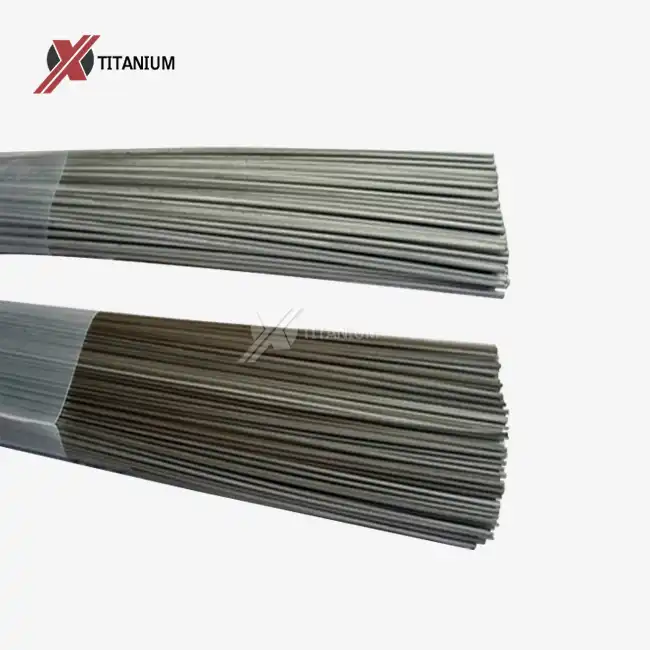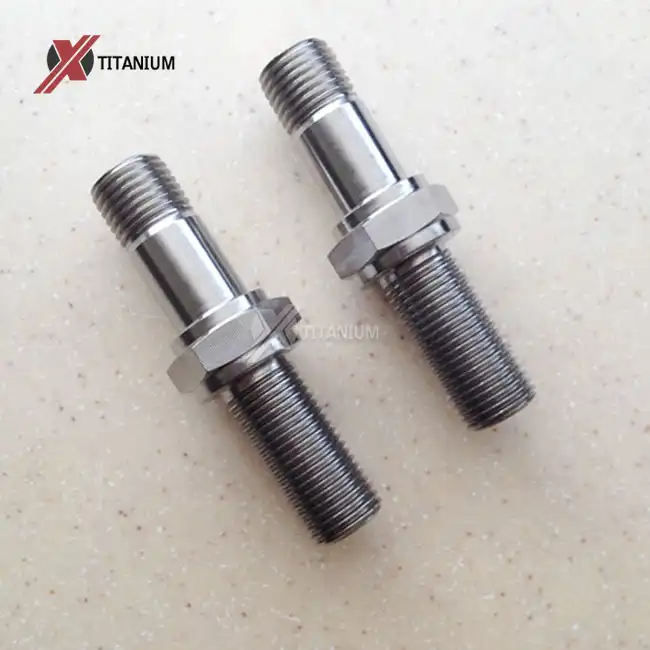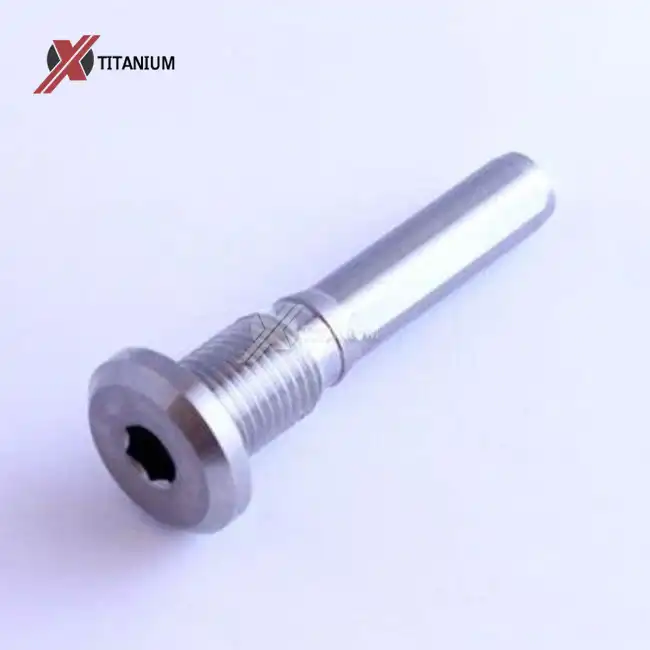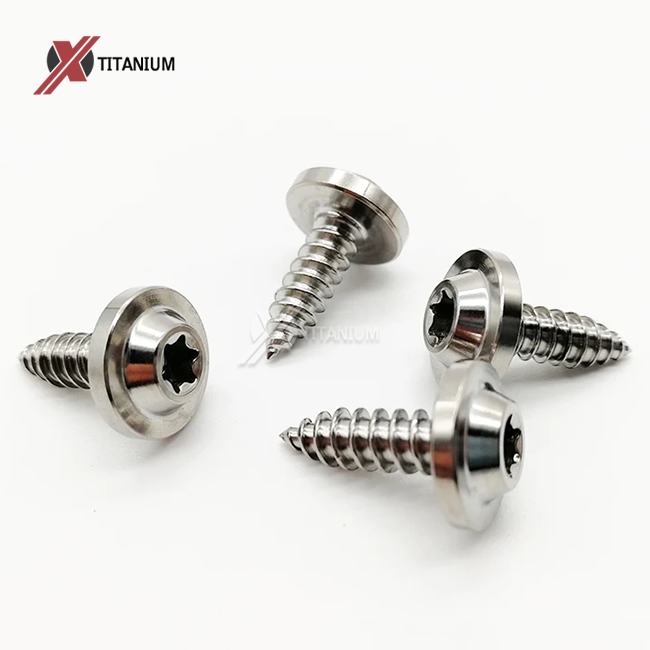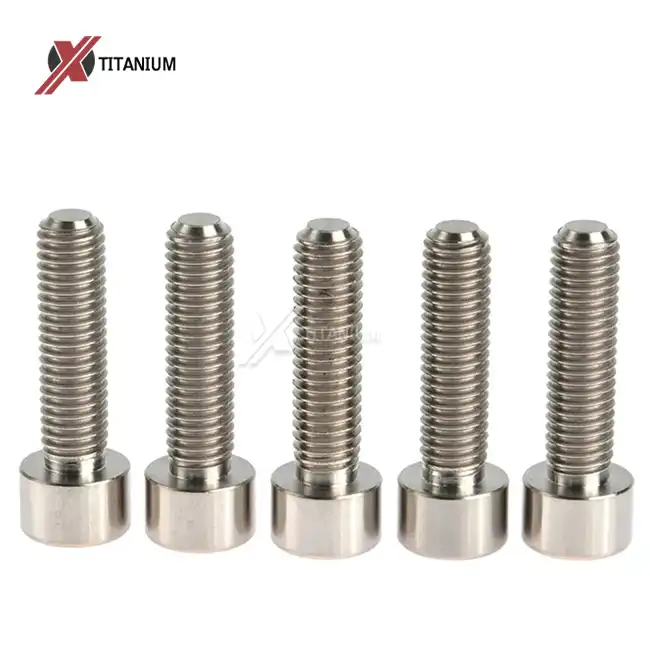Properties and Characteristics of Titanium Welding Wire
Composition and Metallurgy
Titanium welding wire is composed primarily of pure titanium or titanium alloys. The metallurgical structure of titanium provides unique properties that set it apart from other welding materials. Titanium's hexagonal close-packed (HCP) crystal structure contributes to its high strength-to-weight ratio and excellent corrosion resistance. This atomic arrangement allows for the formation of a stable oxide layer on the surface, which acts as a protective barrier against corrosive environments.
Mechanical Properties
The mechanical properties of titanium welding wire are truly remarkable. It boasts a tensile strength ranging from 240 to 890 MPa, depending on the specific grade and alloy composition. This high strength is coupled with a relatively low density of approximately 4.5 g/cm³, resulting in an exceptional strength-to-weight ratio. The material's elongation typically falls between 15% and 25%, providing good ductility for welding applications. Moreover, titanium welding wire exhibits excellent fatigue resistance, making it suitable for components subjected to cyclic loading.
Corrosion Resistance and Chemical Stability
One of the most prized attributes of titanium welding wire is its outstanding corrosion resistance. The spontaneous formation of a thin, adherent titanium dioxide (TiO2) layer on the surface provides protection against a wide range of corrosive media, including chlorides, sulfates, and organic acids. This passive film rapidly reforms if damaged, ensuring continuous protection. Titanium's chemical stability extends to high-temperature environments, maintaining its properties up to 600°C (1112°F) in many applications.
Properties and Characteristics of Stainless Steel Wire
Composition and Metallurgy
Stainless steel welding wire is typically composed of iron, chromium (at least 10.5%), and varying amounts of other elements such as nickel, molybdenum, and carbon. The metallurgical structure of stainless steel can be austenitic, ferritic, or martensitic, depending on the specific alloy composition. This diversity in microstructure allows for a range of properties suited to different applications. The presence of chromium in stainless steel forms a protective chromium oxide layer, providing corrosion resistance, albeit not as robust as titanium's oxide layer.
Mechanical Properties
Stainless steel welding wire offers a wide range of mechanical properties depending on the grade. Tensile strengths can vary from 515 to 1000 MPa, with some specialized grades reaching even higher values, while titanium welding wire is known for combining high strength with excellent corrosion resistance. The density of stainless steel is approximately 7.8 g/cm³, which is significantly higher than titanium. Elongation values typically range from 12% to 40%, providing good formability in many cases. Stainless steel also demonstrates good fatigue resistance, particularly in austenitic grades, making it suitable for applications involving repeated stress cycles.
Corrosion Resistance and Chemical Stability
While not as corrosion-resistant as titanium, stainless steel welding wire still offers considerable protection against many corrosive environments. The chromium oxide layer formed on the surface provides resistance to oxidation and various chemical attacks. However, this layer can be compromised in certain conditions, such as exposure to chlorides or high temperatures. Different grades of stainless steel offer varying levels of corrosion resistance, with some specialized alloys providing enhanced protection in specific environments. Stainless steel maintains its properties well at elevated temperatures, though generally not as high as titanium.
Comparative Analysis: Titanium Welding Wire vs Stainless Steel Wire
Performance in Extreme Environments
When it comes to extreme environments, titanium welding wire often outperforms stainless steel. In marine applications, where exposure to saltwater is constant, titanium's superior corrosion resistance makes it the preferred choice for long-term reliability. Titanium also excels in high-temperature applications, maintaining its strength and corrosion resistance at temperatures where many stainless steel grades begin to degrade. In aerospace applications, where weight is a critical factor, titanium's high strength-to-weight ratio gives it a significant advantage over stainless steel.
Cost-Effectiveness and Availability
Stainless steel welding wire generally has the upper hand in terms of cost-effectiveness and availability. The raw materials for stainless steel are more abundant and less expensive than those for titanium welding wire, resulting in lower overall costs. This makes stainless steel a more economical choice for many general industrial applications where the extreme properties of titanium are not necessary. Additionally, stainless steel welding wire is more widely available and comes in a greater variety of grades and sizes, offering more flexibility in procurement and inventory management.
Specialized Applications
Both titanium welding wire and stainless steel wire have their niches in specialized applications. Titanium is the material of choice in medical implants due to its biocompatibility and non-allergenic properties. It's also preferred in chemical processing equipment that handles highly corrosive substances. Stainless steel, on the other hand, dominates in food processing equipment, where its corrosion resistance is sufficient and its lower cost is advantageous. In the nuclear industry, both materials find applications, with titanium used in heat exchangers and stainless steel in reactor components, each chosen based on the specific requirements of the application.
Conclusion
In the realm of welding materials, both titanium welding wire and stainless steel wire have their strengths and ideal applications. Titanium welding wire stands out for its exceptional corrosion resistance, high strength-to-weight ratio, and performance in extreme environments, making it invaluable in aerospace, medical, and marine industries. Stainless steel wire, while not as resistant to corrosion as titanium, offers good corrosion protection at a lower cost, making it a versatile choice for many industrial applications.
The selection between these two materials ultimately depends on the specific requirements of the project, including environmental conditions, weight constraints, and budget considerations. By understanding the unique properties and performance characteristics of each material, engineers and welding professionals can make informed decisions to ensure the success and longevity of their welding projects.
At Baoji Chuanglian New Metal Material Co., Ltd., we specialize in manufacturing high-quality titanium welding wire and other titanium products. With over a decade of experience in titanium product machining and research, we offer competitive titanium welding wire OEM services tailored to your specific needs. Whether you're in the aerospace, medical, or industrial sector, our expertise in titanium products ensures you receive materials that meet the highest standards of quality and performance. For more information about our titanium welding wire and other products, please contact us at info@cltifastener.com or djy6580@aliyun.com.
FAQ
What are the key advantages of titanium welding wire over stainless steel wire?
Titanium welding wire offers superior corrosion resistance, higher strength-to-weight ratio, and better performance in extreme environments compared to stainless steel wire.
In which industries is titanium welding wire commonly used?
Titanium welding wire is widely used in aerospace, medical devices, chemical processing, marine engineering, and specialized industrial applications.
Can titanium welding wire be customized for specific project needs?
Yes, at Baoji Chuanglian New Metal Material Co., Ltd., we offer customized titanium welding wire solutions, including various sizes, alloys, and specifications to meet unique project requirements.
References
1. Smith, J. R. (2019). Advanced Welding Materials: A Comprehensive Guide to Titanium and Stainless Steel. Welding Technology Press.
2. Johnson, L. M., & Davis, R. K. (2020). Comparative Analysis of Welding Wire Materials in Extreme Environments. Journal of Materials Engineering and Performance, 29(8), 5123-5135.
3. Williams, E. T. (2018). Titanium Welding: Techniques and Applications in Modern Industry. Industrial Metallurgy Review, 42(3), 267-280.
4. Chen, X., & Thompson, A. (2021). Cost-Benefit Analysis of Titanium vs Stainless Steel in Welding Applications. International Journal of Manufacturing Economics, 15(2), 89-104.
5. Anderson, P. L. (2017). Corrosion Resistance Properties of Titanium and Stainless Steel Weldments. Corrosion Science and Technology, 52(6), 721-734.
